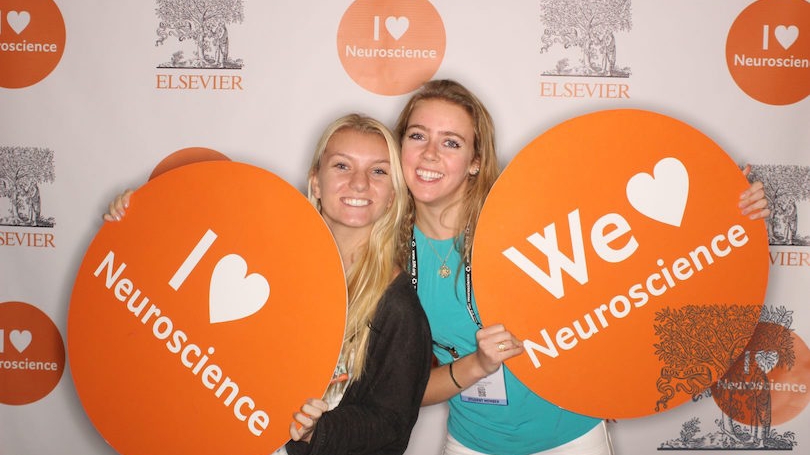
- Public Policy
- Leadership
- Funding
- News & Events
- About the Center
Back to Top Nav
Back to Top Nav
Back to Top Nav
Back to Top Nav
Upon entering the San Diego Conference Center on the first day of the Annual Neuroscience Meeting, I was overwhelmed by the sheer number of posters set up around the room, labeled from A all the way to ZZZ. I did not have a set itinerary for the first day, so I spent most of my time determining the layout and organization of the convention center and planning how I would spent the next few days at the conference. As I roamed around the building, I sought out the topics that most interested me, as I tried to pick a topic for my final research paper for my senior neuroscience seminar. I ended up choosing Traumatic Brain Injury and Chronic Traumatic Encephalopathy as my topic. I was partially influenced by this decision based on the knowledge I have about Thayer School of Engineering developing MVP (Mobile Virtual Player) to combat football-related concussions.
The next couple of days at the conference were spent going to symposiums, minisymposiums, nanosymposiums, and poster sessions related to the topic of Traumatic Brain Injury. I learned an immense amount of information by listening to leading neuroscientists discuss their cutting-edge research and by conversing with the primary authors of research posters. During my experience throughout the conference, I learned how to effectively and respectfully communicate with prominent leaders in the field of neuroscience.
Furthermore, my experience at the Annual Neuroscience Meeting allowed me to better understand myself and my own interests as well as what I would like to pursue next year post graduation. The conference was an excellent opportunity to fully immerse myself in the world of neuroscience as well as to network with my peers, leaders, and idols in the field. I am extremely grateful to Dartmouth for the opportunity to attend the Annual Neuroscience Meeting, as I know it was an experience that will greatly impact my future career direction.
-Submitted by Lauren Gruffi '17, Rockefeller Center Mini Grant Recipient
The Rockefeller Center's Mini-Grants program funds registration fees for students attending conferences, as well as the costs of bringing guest speakers to Dartmouth. The views and opinions expressed here are the author’s own and do not necessarily represent the views and opinions of the Rockefeller Center or constitute an endorsement by the Center.